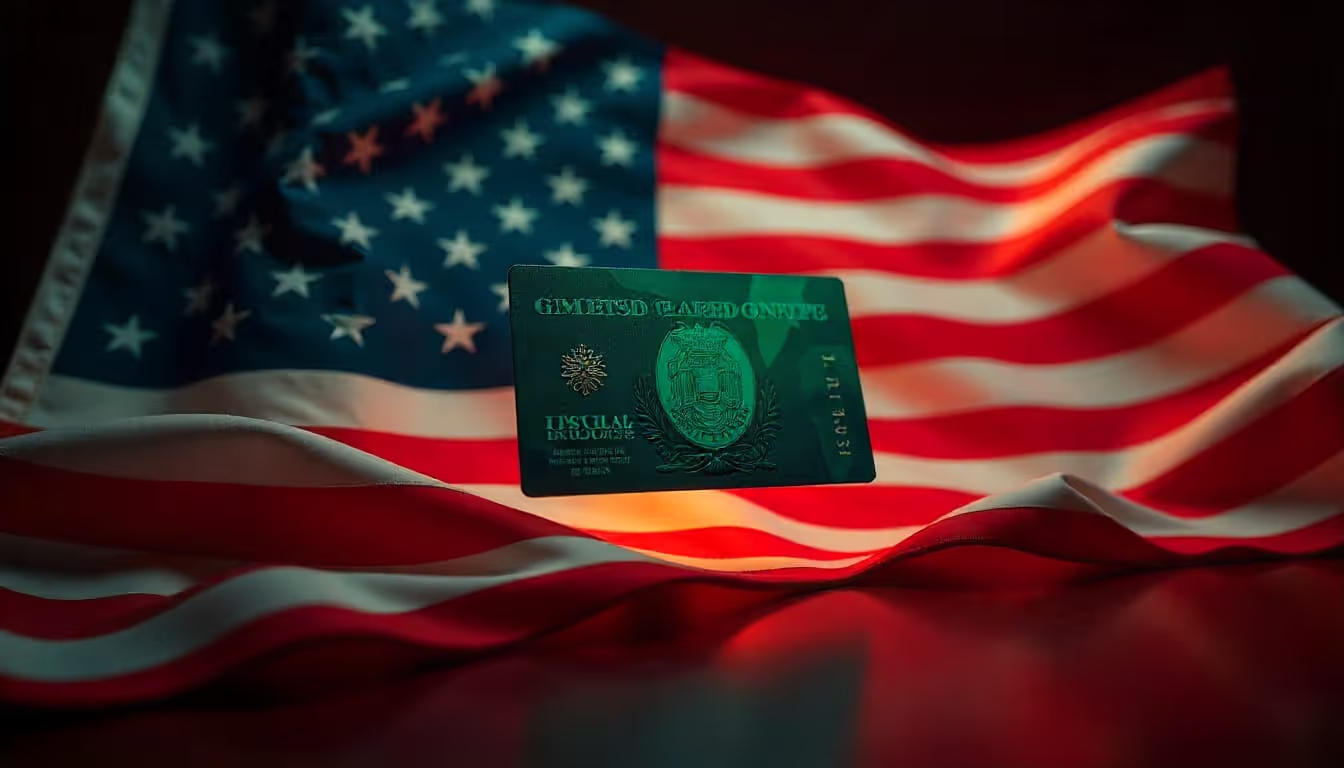.png)
.png)
Wondering if you need a U.S. agent for your O-1 visa? Learn when an O-1 visa sponsor or U.S. petitioner for O-1 is required, and how to structure your O-1 agent requirement properly.
.avif)
If you’ve started exploring the O-1 visa process, you’ve probably come across the term “U.S. agent.” But what exactly does that mean? Do you absolutely need one—or can you go ahead with a direct employer instead?
That question trips up a lot of applicants—especially creatives, freelancers, and startup founders. The good news? The answer depends entirely on how your work is structured. And no, USCIS doesn’t require every applicant to have a U.S. agent—but in certain cases, it becomes essential.
Let’s break down when an agent is truly required, what qualifies someone to act as one, and what you can do if you don’t have one lined up yet.
When USCIS refers to a “U.S. agent,” they mean someone who can file the O-1 petition on your behalf—either as your employer or as your representative.
This agent could be:
Importantly, your U.S. petitioner for O-1 must be based in the U.S. and authorized to do business. This means they can’t be a foreign company or someone outside the U.S. trying to support your petition.
USCIS rules allow agents to be fairly flexible in their role. There’s no formal licensing process for someone to serve as an agent, but they must be able to show they’re in a legitimate position to represent your engagements.

You don’t always need an agent—but if your work involves multiple clients, gigs, or employers, you almost always do.
Let’s say you’re an actor working on several film projects across studios, or a designer juggling five clients. USCIS doesn’t want five separate O-1 petitions for each of those. Instead, they want one consolidated filing—usually submitted through a U.S. agent who represents all those jobs in one go.
In other words, the O-1 agent requirement is triggered when:
This also applies to founders or creators who work with a mix of U.S. partners and international clients. A U.S. agent can provide structure and clarity to your petition—even if it’s your own company acting as the agent.
If you’re unsure whether your case qualifies, Beyond Border can walk you through your work setup and advise whether a U.S. agent is needed.
Great—then you may not need an agent at all.
If your O-1 petition is based on a full-time job offer from one U.S. employer, and that employer is the one filing the petition, you don’t need a separate agent.
This happens often in tech roles, research positions, or long-term creative jobs. For example, a studio hiring a cinematographer on a long-term contract could be both the O-1 visa sponsor and petitioner.
In this case, USCIS will expect to see:
If everything checks out, that employer can file directly without needing an agent.
Still, you’ll need to ensure that all your evidence—including contracts, letters, and your portfolio—is strong enough to support the O-1 petition portfolio. That’s something Beyond Border can help fine-tune before submission.
There’s no official USCIS “agent license.” But your agent must:
That could be a talent manager, a production company, a digital agency, or even your U.S.-registered LLC.
However, they must also submit:
Your agent isn’t required to pay you directly—they’re just the go-between who organizes your gigs into a single petition structure.
If you're not sure whether someone qualifies, Beyond Border can assess your situation and even connect you with potential agents if needed.
Yes—and this is common for startup founders, solo consultants, and creatives.
Let’s say you’ve set up a U.S. LLC or C-corp that contracts you for your work. That company, as long as it’s legally formed and operating in the U.S., can petition for your O-1 visa—effectively acting as your agent.
Just remember: USCIS will still want to see real work arrangements—so this can’t be a shell entity. The business must show legitimate contracts or projects, and your O-1 petition portfolio still needs to meet the high bar of evidence.
This is where working with professionals becomes crucial. Beyond Border can help make sure your corporate structure, contracts, and letters are airtight.

Don’t worry—many applicants don’t start with one.
If your work qualifies for the O-1 but you don’t yet have a U.S. agent or entity, there are a few options:
It’s important not to try and force-fit an agent just for the sake of filing. USCIS can spot weak setups easily—and that leads to delays or denials.
Instead, take time to structure your petition right. Need help? Beyond Border specializes in helping O-1 applicants build petitions that reflect how they truly work—agent or not.
Can I self-petition my O-1 visa?
No. Unlike the EB-1A green card or EB-2 NIW, the O-1 visa requires a U.S. petitioner—you cannot self-petition.
Does USCIS verify all the clients under an agent petition?
Yes, they often request detailed contracts and terms. That’s why your agent must be prepared to back up every project listed in your petition.
Can an immigration attorney act as my agent?
No. Your lawyer can’t be the agent unless they’re also part of a U.S. business representing your work.
The O-1 visa gives you flexibility—but only if your petition is built properly.
Whether you need an agent depends on how your work is structured. If it’s multiple gigs or flexible collaborations, a U.S. agent might be essential. But if you have one full-time U.S. employer, you may be able to file without one.
Not sure where you fall? Let Beyond Border help you figure it out. We’ll review your profile, walk through your projects, and help you determine if an agent is needed—or how to secure one that strengthens your petition.